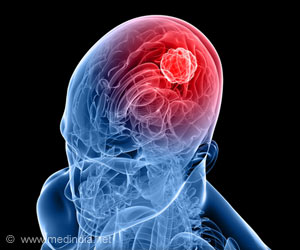
‘The pathway, which involves a protein called Rab35, is defective in many patients with glioblastoma and that restoring Rab35's activity could be a new therapeutic strategy for this deadly form of brain cancer.’
Tweet it Now
The levels of these receptor proteins are controlled by cellular transport pathways that internalize the receptors and then either degrade them or return them to the cell surface. In normal, healthy cells, these transport pathways are regulated by a class of protein known as small GTPases. "We previously demonstrated that the levels of a small GTPase called Rab35 are decreased in human glioblastomas," says Peter S. McPherson, Director of The Neurodegenerative Disease Research Group at The Neuro (Montreal Neurological Institute-Hospital), McGill University. "We thus sought to investigate the role of Rab35 in the progression of glioblastoma."
McPherson and colleagues found that reducing the levels of Rab35 increased the growth and spread of brain tumors in mice, thereby shortening the animals' life span. In contrast, elevating Rab35 levels reduced tumor growth and prolonged the animals' survival.
The researchers discovered that Rab35 is activated by a pathway involving another small GTPase called Arf5. Together, Arf5 and Rab35 appear to control the transport of various cell surface receptors, thereby restricting the ability of cells to migrate and invade through tissues, and limiting the ability of brain tumor-initiating cells to replicate.
One of the cell surface receptors controlled by this pathway is the signaling protein epidermal growth factor receptor (EGFR). In glioblastoma cells lacking Rab35, EGFR is increasingly recycled to the cell surface instead of being degraded, enhancing the receptor's signaling activity. Inhibiting EGFR with the cancer drug erlotinib reduced the production of a protein called SPOCD1, which is known to promote the proliferation and/or metastasis of multiple cancers.
Advertisement
"Rab GTPases are emerging as an important new set of drug targets in cancer," McPherson says. "Our study reveals an unprecedented link between Rab and Arf proteins and identifies new loci for therapeutic intervention in glioblastoma."
Advertisement














